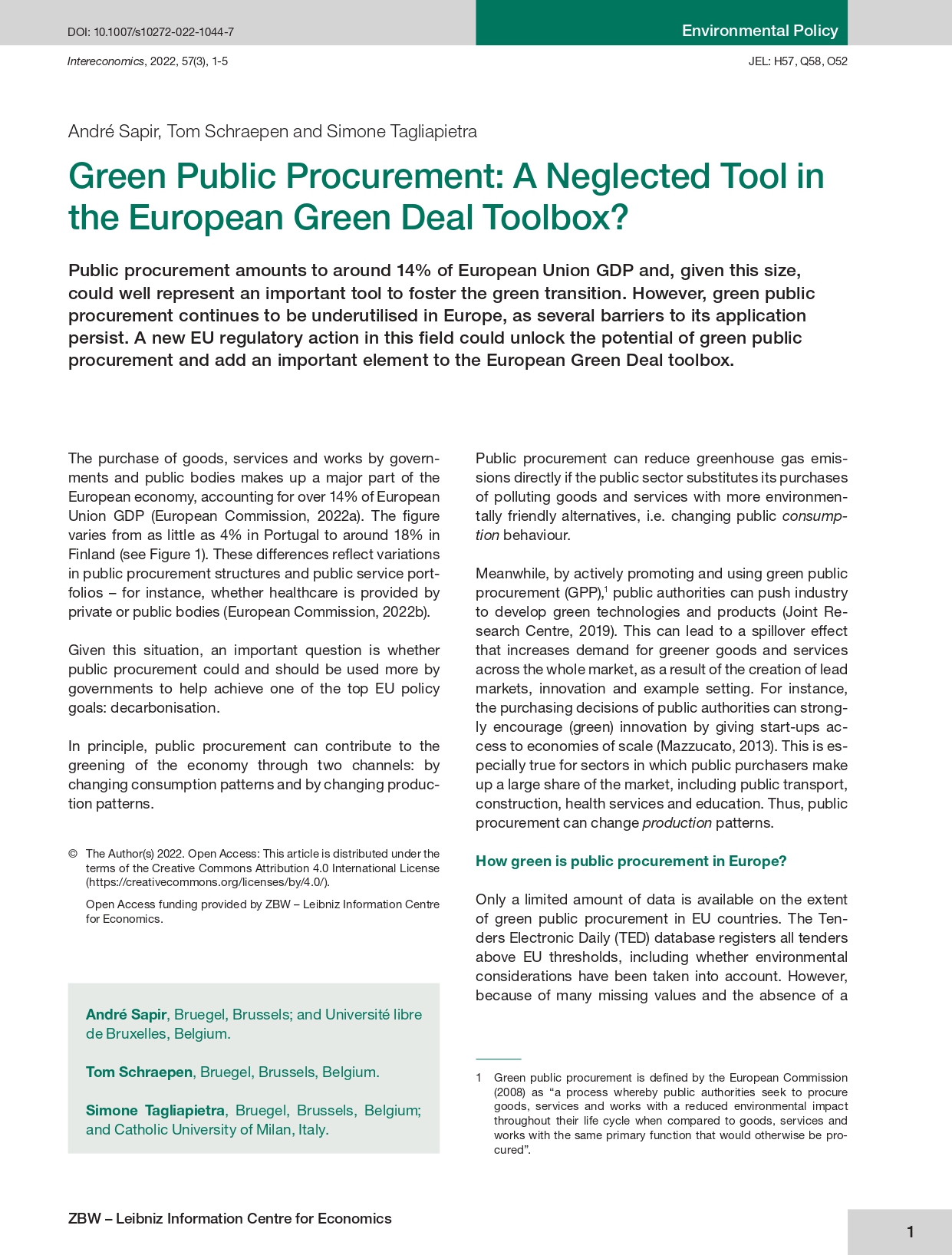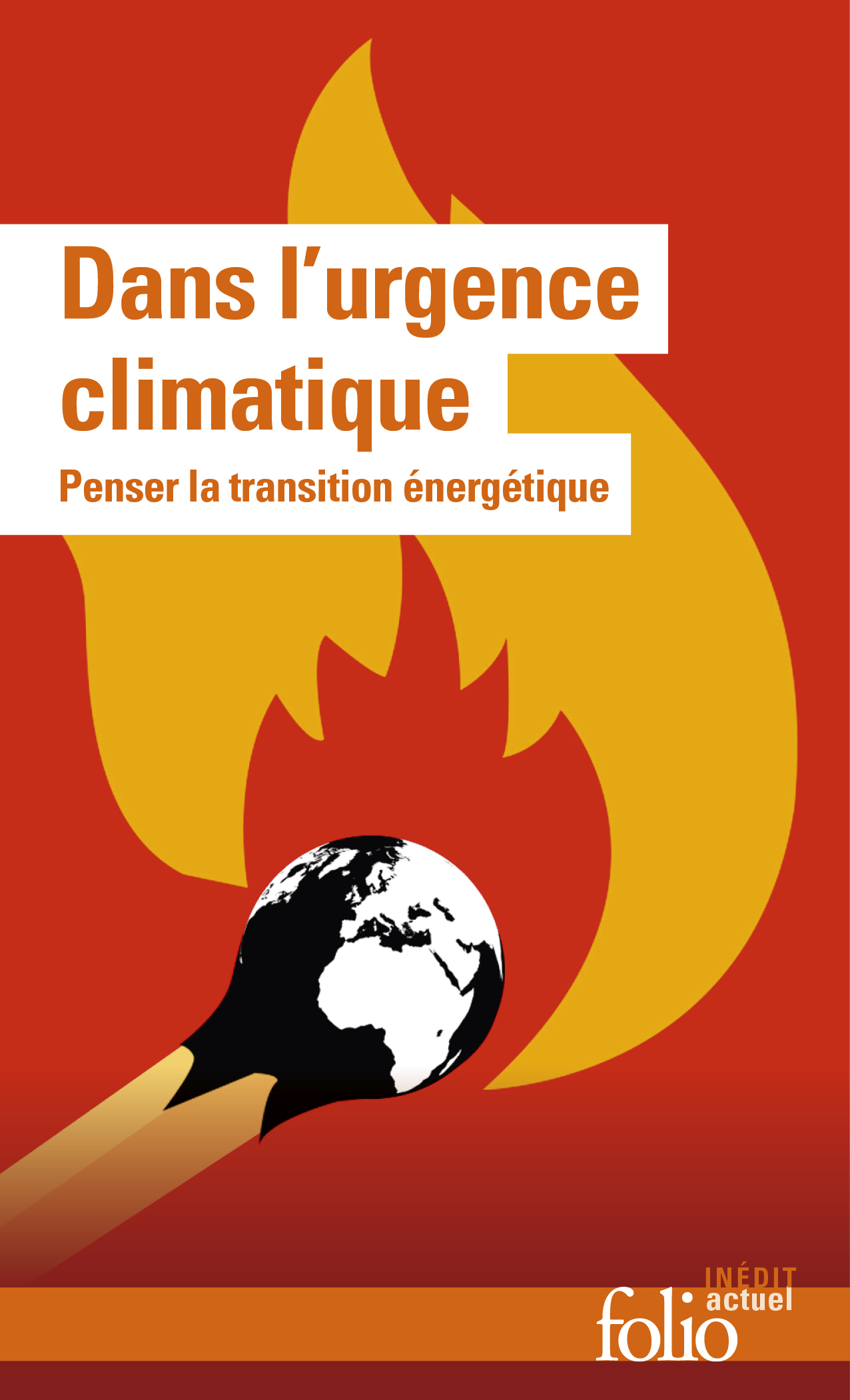Opinion
Four pillars to make or break the European Green Deal
The recipe for a successful European Green Deal is as simple as it is breath-taking: to intelligently promote deep decarbonisation by accompanying the economic and industrial transformation this necessarily implies, and by ensuring the social inclusiveness of the overall process.
“Our most pressing challenge is keeping our planet healthy. This is the greatest responsibility and opportunity of our times.” This is how Ursula von der Leyen urged the European Parliament to back her proposal of a European Green Deal that would make Europe climate neutral by 2050.
With her European commission arriving soon, it is now high time to think about how to translate this wisdom into reality.
In our view, there are four vital pillars of a sustainable European Green Deal.
First, a meaningful carbon price should be established for all sectors, by strengthening the EU emissions trading system (ETS) and by pushing EU countries to increase the price for emissions not covered by the ETS. To ensure a robust mechanism against carbon leakage, a carbon border tax should be prepared. And yet, such a measure will be extremely politically challenging, and the EU’s future climate policy should not rely on the success of its implementation. Other instruments should, therefore, be put in place first, including subsidies for low-carbon exports and stricter environmental standards importers would have to comply with to access the EU market.
Second, the carbon price should be complemented by a sustainable investment strategy that pushes companies to switch technologies and promotes behavioural change among citizens, offsetting any rising costs they face because of higher carbon prices. Green investment should be promoted by shifting current EU funds towards this purpose while enabling EU countries to support green investment, and by incentivising private investment through regulatory measures and through support from publicly owned banks.
Third, European industry should be strengthened through support for disruptive green innovation; by creating the conditions for innovative, green, European companies to flourish (for example through new product standards and via carbon-based contracts for difference to ensure competition between companies for the most efficient technologies); and through measures to export the European Green Deal on the back of a reform of EU neighbourhood and development policy.
Fourth, the adverse social consequences of climate policies should be taken into account and minimised in each European climate policy proposal. Unavoidable impacts should be addressed by targeted compensation measures. The scope of the European Globalisation Adjustment Fund can be broadened and the mechanism adjusted to aid the transition in coal-mining regions.
Should the strategy succeed, the European Green Deal might become a blueprint for other countries and a tangible example that pursuing climate neutrality is technically feasible and economically and politically viable.
To be clear, this will not be a smooth ride. As in any revolution, there will be winners and losers. What a European Green Deal should do is provide a clear sense of direction to citizens and companies, and put in place mechanisms to ensure that the most vulnerable segments of society are supported and not left behind.
This oped summarises the key points of a new Bruegel paper.
For more from the authors on the European Green Deal, listen to our podcast:
Republishing and referencing
Bruegel considers itself a public good and takes no institutional standpoint.
Due to copyright agreements we ask that you kindly email request to republish opinions that have appeared in print to [email protected].












